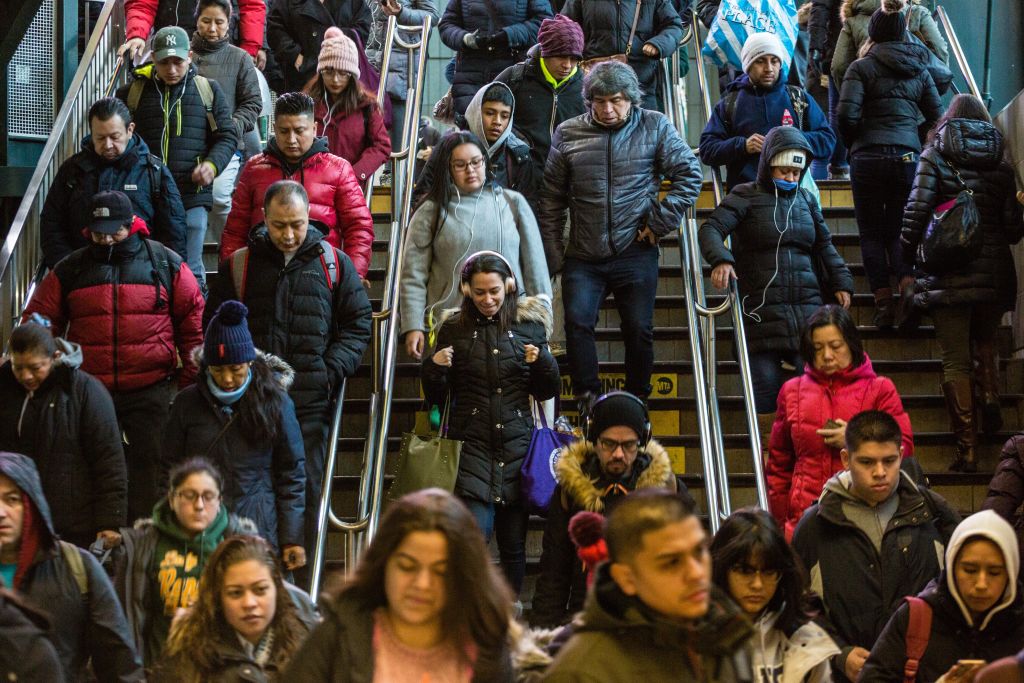Linguistic diversity has defined America since the beginning.

Nobody knows how many languages Americans speak.
The most exhaustive tally by the Census Bureau a decade ago found more than 350, but the actual number is likely to be several times that. A recent linguist-run survey has found 700 languages and counting in New York alone, making it the most linguistically diverse city on record. That means around 10 percent of the world’s languages are represented in America’s largest city, including not only all major national languages but hundreds of indigenous, minority, and primarily oral languages. Today many are highly endangered, even as their speakers are arriving.
[time-brightcove not-tgx=”true”]The city’s story may seem unique given its continuous record as an immigration gateway—from the founding of New Amsterdam as a multilingual port exactly 400 years ago next month to Ellis Island to the arrival of over 180,000 migrants in the last two years.
But this is not just a New York story, it’s a deeply American one. Linguistic diversity has defined America since the beginning. Hundreds of Native languages are connected to this land, of which dozens are still spoken today and dozens of others are now being revived against extraordinary odds given histories of colonization, genocide, and displacement.
The U.S. has never had an official language. Although English is the undisputed lingua franca and in no danger of ceding that position, multilingualism is fundamental, as in most of the world. Half of all New Yorkers speak a language other than English at home, and the same is true in Los Angeles, Miami, and San Jose. And while Spanish is now clearly the nation’s second language, hundreds of others from Latin America, Europe, Africa, and the Asia-Pacific are widely spoken in communities across the U.S. In a country that reflects the world, there are no “truly foreign languages” that “nobody speaks,” as Donald Trump put it recently in a cryptic attack on immigration that he is clearly road testing for the campaign trail.
Though their full linguistic richness remains uncharted, cities like Chicago, Atlanta, and Houston are starting to approach New York levels of diversity. In city after city, Indigenous languages are holding on against the pervasive pressure to shift to larger languages: Zapotec in LA, Yucatec Maya in San Francisco, Mam (a Mayan language of Guatemala) in Oakland. Hmong and Somali are an integral part of the Twin Cities, just as Amharic is in D.C. and Cape Verdean Creole is in Boston—to name just a few examples.
It’s especially significant that many states and towns not known for their linguistic diversity are now vital hubs for endangered language communities: Speakers of Maay Maay from Somalia in Lewiston (Maine), Karen in Utica (New York), Marshallese in Springdale (Arkansas), K’iche’ in New Bedford (Massachusetts), Rhade and other Montagnard languages of Vietnam in Greensboro (North Carolina), and Tai Dam in central Iowa.
These groups and many others constitute an unsung but expanding and very American archipelago of refuge, for many have come one way or another fleeing political and economic hardship. The arrival of once rural and remote languages into American towns and cities can bring bracing challenges, not just in terms of the provision of government services and civic life but because of differing conceptual worlds and communicative practices. But there are also tremendous opportunities, putting the country on the front line of efforts to document, maintain, and revitalize many of the world’s thousands of languages that are in danger of disappearing and taking with them vast reserves of knowledge and culture.
The key role played by immigrants and refugees in reviving struggling towns and cities is increasingly recognized, but the importance of language is still consistently underestimated. As has been the case for centuries, those desperate enough to risk everything for a new life in America are more likely to be members of persecuted or marginalized ethnolinguistic or religious minorities, marked by distinctive languages which have much deeper roots than contemporary nation-states. Today they are Maya, Bantu, and Hazara as much as they are Guatemalan, Somali, or Afghan—and we need to understand those core identities.
So far official data only captures a fraction of this diversity, which remains inaudible and invisible to the Census Bureau, let alone politicians and policymakers and most speakers of larger languages. Of New York City’s 700-plus languages, ten now receive explicit government recognition (requiring city agencies to translate common documents, for instance). Other recent progress is promising but patchy, from the Census Bureau updating its language coding system for better data collection to new city- and state-level language access bills (most recently in New Jersey).
Yet now more than ever, “Ellis Island” is everywhere in America, bringing an unprecedented depth of human and cultural diversity. Now is the time to tune in to the hundreds of Indigenous and endangered languages spoken not only in major cities but right next door. The fate of both the languages and those who speak them increasingly rests on their survival and development in American diaspora, but there is currently very little in the way of linguistic support beyond the local efforts of individuals. Yet by serving as a haven for smaller groups from around the world seeking refuge and opportunity and by making space for their languages, our nation not only redeems some of its founding promise but becomes something more than a nation—a microcosm of our endangered and extraordinary planet, in all its languages.
Adapted from Perlin’s new book Language City: The Fight to Preserve Endangered Mother Tongues in New York